Leisure, as explored in Leisure, the Basis of Culture, is a foundational concept that transcends mere free time, embodying a mindset of reflection and festivity, essential for cultural flourishing․
1․1 Definition and Understanding of Leisure
Leisure, as defined by Josef Pieper, is not merely the absence of work but a state of mind characterized by intellectual and spiritual freedom․ It involves the ability to engage in activities that bring fulfillment and joy, fostering a deeper connection to culture and life․ Pieper emphasizes that leisure is universal, experienced by everyone, though often unrecognized․ It is a time for reflection, creativity, and celebration, allowing individuals to transcend daily routines and connect with their inner selves and the world around them․
1․2 Historical Context of Leisure in Culture
Throughout history, leisure has played a pivotal role in shaping cultural identity․ In ancient Greece, leisure was associated with intellectual pursuits and civic engagement, while in Rome, it often centered on public spectacles and communal celebrations․ During the Middle Ages, religious practices influenced leisure, emphasizing rest and reflection․ These historical contexts reveal how leisure has consistently been a mirror of societal values, evolving to reflect changing norms and priorities while remaining a cornerstone of cultural expression and human fulfillment․
1․3 The Significance of Josef Pieper’s Work
Josef Pieper’s work, particularly his book Leisure: The Basis of Culture, is seminal in redefining leisure as a spiritual and intellectual state․ He distinguishes leisure from idleness, emphasizing its role in fostering contemplation and creativity․ Pieper argues that leisure is essential for restoring the human spirit and countering the dehumanizing effects of modern work culture․ His ideas resonate deeply, urging society to reclaim leisure as a foundation for a fulfilling and culturally rich life․
The Philosophy of Leisure
Leisure, as a philosophical concept, transcends mere idleness, embodying a state of mental freedom and intellectual engagement; It balances work, fostering a deeper connection to life’s meaning and culture․
2․1 Leisure as a State of Mind
Leisure, as a state of mind, is characterized by intellectual freedom and a detachment from utilitarian purposes․ It involves a mental posture of calmness, openness, and receptivity, allowing individuals to engage deeply with their surroundings and thoughts; This state fosters reflection, creativity, and a genuine connection to life’s essence․ Leisure, in this sense, is not mere idleness but an active, contemplative state that complements work and enriches human experience, enabling personal growth and a deeper understanding of culture and existence․
2․2 The Relationship Between Leisure and Work
Leisure and work are interconnected yet distinct aspects of human life․ While work focuses on productivity and utility, leisure emphasizes non-utilitarian activities that replenish the mind and spirit․ A balanced relationship between the two is essential for a fulfilling life, as leisure rejuvenates individuals, enhancing their productivity and creativity in work․ However, modern societies often prioritize work over leisure, leading to burnout and diminished well-being․ Striking this balance is crucial for fostering a culture that values both productivity and personal enrichment, ensuring a harmonious coexistence of work and leisure․
2․3 Festivity as the Heart of Leisure
Festivity is the vibrant essence of leisure, embodying joy, communal celebration, and a break from mundane routines․ It transcends mere entertainment, fostering connections and shared experiences that enrich cultural life․ Festivity reflects the spirit of leisure, where individuals come together to celebrate and find meaning․ Josef Pieper highlights its importance as a celebration of life’s richness, distinguishing it from utilitarian activities․ In a fast-paced world dominated by work and technology, festivity remains crucial for preserving the authentic, life-affirming core of leisure․
Leisure and Culture
Leisure profoundly influences and is shaped by culture, reflecting societal values and traditions while fostering community identity and creativity․ Culture provides the context and meaning for leisure activities․
3․1 The Role of Leisure in Shaping Culture
Leisure plays a pivotal role in shaping culture by fostering creativity, community bonding, and the preservation of traditions․ It provides the space for contemplation and celebration, allowing societies to express their values and identities․ Through leisure activities, cultural norms and practices are transmitted across generations, creating a sense of continuity and belonging․ Leisure also encourages innovation, as free time enables exploration and experimentation, leading to cultural evolution․ Ultimately, leisure is not just a reflection of culture but a dynamic force that molds it․
3․2 Leisure as a Catalyst for Art and Creativity
Leisure serves as a fertile ground for artistic expression and creativity, allowing individuals to explore new ideas and innovate․ Historically, many iconic works of art, literature, and music emerged during periods of leisure, as minds were free to wander and imagine․ The absence of urgency fosters a mental state conducive to creativity, enabling artists to experiment and push boundaries․ Leisure not only inspires but also nurtures the soul, making it an essential component of cultural and artistic advancement; It is in these moments of pause that humanity often creates its most enduring masterpieces․
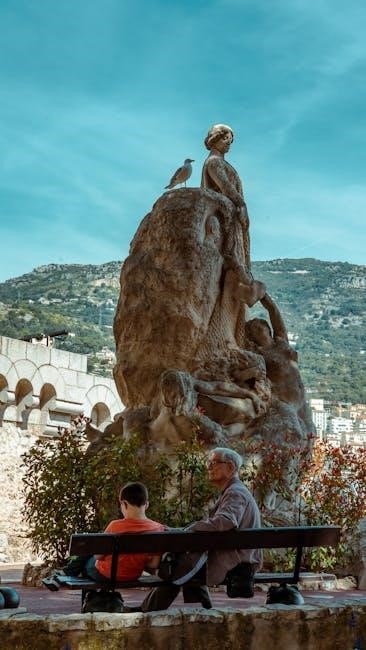
3․3 The Impact of Leisure on Social Norms
Leisure significantly influences social norms by shaping cultural values and behaviors․ It reflects societal priorities, as activities deemed worthy of leisure time often gain cultural approval․ Conversely, leisure can challenge norms by providing spaces for experimentation and deviation․ Historical shifts, such as the rise of recreational sports or the embrace of hobbies, illustrate how leisure reshapes societal expectations․ Over time, leisure activities have blurred class divides and fostered inclusivity, demonstrating its power to evolve and redefine cultural standards․ This dynamic interplay underscores leisure’s role in both mirroring and transforming society․
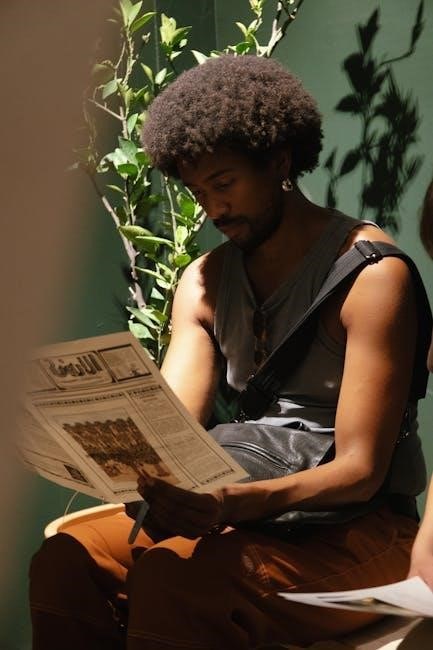
The Historical Development of Leisure
Leisure’s evolution reflects cultural shifts, from ancient philosophical ideals to modern recreational practices, highlighting its role in shaping societal values and human well-being across eras․
4․1 Ancient Philosophical Perspectives on Leisure
In ancient philosophy, leisure was viewed as a cornerstone of a virtuous life․ Aristotle emphasized leisure as a means to pursue intellectual and moral virtues, essential for achieving eudaimonia (happiness or flourishing)․ Plato also saw leisure as crucial for the cultivation of wisdom and the development of a just society․ These philosophers understood leisure not as idleness but as an opportunity for contemplation and personal growth, highlighting its role in shaping culture and societal values․ Their ideas remain influential in understanding leisure’s significance today․
4․2 Leisure in the Middle Ages
During the Middle Ages, leisure was primarily reserved for the nobility and clergy, while peasants labored intensely․ The Church influenced leisure practices, designating Sundays and religious holidays for rest and worship․ Festivals and guild fairs became central to communal leisure, fostering social cohesion․ Knights engaged in jousting and hunting, while monasteries promoted intellectual pursuits like reading and music․ Despite its limited accessibility, medieval leisure laid the groundwork for cultural traditions that persist today, emphasizing community and spiritual enrichment over individual indulgence․

4․3 The Evolution of Leisure in Modern Times
Modern leisure has evolved significantly, shaped by industrialization, urbanization, and technological advancements․ The rise of the middle class democratized leisure, making it accessible beyond aristocratic circles․ New forms of entertainment emerged, such as cinema, sports, and digital media, while travel and tourism became widespread․ However, modern leisure also faces challenges like commercialization and the blurring of work-life boundaries․ Despite these complexities, leisure remains a cornerstone of cultural identity, fostering creativity, relaxation, and personal growth in an increasingly fast-paced world․

Leisure in Contemporary Society
Modern society views leisure as essential for well-being, with diverse activities reflecting cultural values and technological advancements, yet challenges like overwork and digital overload persist․
5․1 The Challenges of Modern Leisure
Modern leisure faces challenges like over-saturation of choices, blurring lines between work and free time, and the pressure to constantly be productive․ Commercialization has turned leisure into a consumer commodity, often losing its authentic, restorative purpose․ Additionally, technological advancements, while offering diverse options, can lead to isolation and decreased face-to-face interaction․ Urbanization and fast-paced lifestyles further complicate the pursuit of meaningful leisure, as people struggle to balance personal time with societal expectations․ These issues highlight the need for a reevaluation of leisure’s role in contemporary life․
5․2 The Role of Technology in Shaping Leisure
Technology has profoundly transformed modern leisure, offering unprecedented opportunities for entertainment, social interaction, and creative expression․ Digital platforms enable virtual experiences, such as online gaming and streaming services, which have become central to leisure activities․ However, excessive screen time and digital overload pose challenges, potentially undermining the restorative nature of leisure․ Additionally, technology blurs the boundaries between work and free time, complicating the pursuit of authentic leisure․ Despite these complexities, technology remains a powerful tool for shaping and enhancing leisure in contemporary society․
5․3 The Commercialization of Leisure Activities
The commercialization of leisure has transformed it into a multibillion-dollar industry, with businesses capitalizing on people’s desire for relaxation and enjoyment․ From theme parks to luxury vacations, leisure is marketed as a commodity, often prioritizing profit over authentic experiences․ While this has democratized access to diverse activities, it risks reducing leisure to consumerism, losing its deeper cultural and personal significance․ This shift reflects broader societal values, where even free time is influenced by market forces, challenging the essence of leisure as a foundation for culture and personal fulfillment․
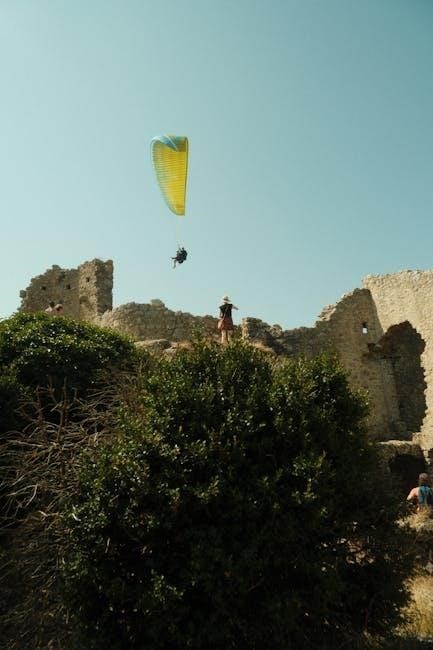
The Psychological and Physical Benefits of Leisure
Leisure enhances mental well-being by reducing stress and fostering creativity, while physical health benefits include improved sleep and reduced inflammation, promoting overall resilience and life satisfaction․
6․1 Leisure and Mental Well-being
Leisure plays a crucial role in enhancing mental well-being by providing opportunities for relaxation, self-reflection, and creativity․ It reduces stress, fosters a sense of calm, and promotes emotional balance․ Engaging in leisure activities stimulates the brain’s default mode, encouraging introspection and imagination․ This mental respite allows individuals to recharge, improving mood and cognitive functioning․ By disconnecting from daily pressures, leisure cultivates a deeper sense of fulfillment and joy, contributing to overall psychological health and resilience in the face of life’s challenges․
6․2 The Importance of Leisure for Physical Health
Leisure activities significantly contribute to physical health by encouraging regular exercise, reducing sedentary behaviors, and promoting overall well-being․ Engaging in sports, walking, or other physical pursuits during leisure time improves cardiovascular health, enhances muscle strength, and boosts flexibility․ It also lowers the risk of chronic diseases like obesity and diabetes․ Additionally, leisure fosters better sleep patterns, which are vital for physical restoration․ By incorporating physical activities into leisure, individuals can maintain a healthier lifestyle, enhancing their overall quality of life and longevity․
6․3 Leisure as a Tool for Stress Relief
Leisure serves as a vital mechanism for stress relief, offering individuals a mental and emotional break from daily pressures․ Engaging in relaxing activities, such as hobbies, sports, or meditation, helps reduce tension and fosters a sense of calm․ Leisure allows time for self-reflection and social interaction, further alleviating stress․ By providing an escape from routine, it enhances resilience and improves overall mental well-being, making it an essential component of a balanced and healthy lifestyle․
Leisure and Education
Leisure supports learning by fostering creativity, improving focus, and enhancing academic performance through relaxed and engaging activities that stimulate the mind and promote intellectual growth․
7․1 The Role of Leisure in Learning
Leisure plays a vital role in learning by creating space for mental relaxation and intellectual rejuvenation․ It allows individuals to engage in activities that stimulate curiosity and creativity, fostering a deeper understanding of subjects․ By stepping away from structured routines, learners can reflect, process information, and reconnect with their passion for knowledge․ Leisure also encourages self-directed learning, enabling individuals to explore topics at their own pace, which can enhance retention and overall academic performance; This balance between rest and intellectual engagement is essential for holistic development․
7․2 How Leisure Enhances Cognitive Development

Leisure activities significantly contribute to cognitive development by stimulating mental processes and fostering problem-solving skills․ Engaging in hobbies such as puzzles, reading, or creative arts enhances memory, concentration, and critical thinking․ Leisure also provides opportunities for learning new skills, which challenges the brain and promotes neuroplasticity․ Additionally, it reduces cognitive fatigue, allowing the mind to function more efficiently․ By encouraging creativity and intellectual exploration, leisure plays a crucial role in sharpening mental acuity and overall cognitive well-being․
7․3 The Integration of Leisure into Educational Systems
Integrating leisure into educational systems fosters a balanced approach to learning, enabling students to recharge and refocus․ Schools increasingly incorporate activities like sports, arts, and music, recognizing their role in holistic development․ These leisurely pursuits enhance creativity, teamwork, and emotional well-being, complementing academic rigor․ By prioritizing leisure, educational systems cultivate a healthier, more engaged student body, preparing individuals for life beyond academics․ This approach aligns with Pieper’s philosophy, emphasizing leisure as a cornerstone of personal and cultural growth․
Leisure and Spirituality
Leisure offers a gateway to spiritual growth, fostering introspection and connection to transcendental values․ It enriches cultural expression by harmonizing inner fulfillment with communal well-being, reflecting Pieper’s ideals․
8․1 The Spiritual Dimensions of Leisure
Leisure holds profound spiritual significance, enabling individuals to transcend mundane routines and connect with higher truths․ It fosters introspection, mindfulness, and a sense of divine presence, enriching inner life․
By creating space for contemplation and silence, leisure allows for spiritual renewal․ It aligns with Pieper’s notion of leisure as a state of being, where the soul nurtures its deepest aspirations and finds harmony with existence․
8․2 Leisure as a Path to Inner Peace
Leisure serves as a gateway to inner peace by allowing individuals to disengage from external pressures and reconnect with their essence․ It fosters mindfulness, mental clarity, and emotional balance, creating a refuge from life’s chaos․
Through leisure, one can cultivate harmony and contentment, aligning with Pieper’s vision of leisure as a state of inner fulfillment․ By embracing stillness and reflection, individuals find solace and renewal, essential for nurturing the soul and achieving lasting peace․
8․3 The Connection Between Leisure and Religious Practices
Leisure and religious practices often intersect, as both seek to elevate the human spirit beyond the mundane․ Many religions incorporate moments of stillness, prayer, or communal celebration, which are forms of leisure that foster spiritual renewal and connection to the divine․
These practices, such as meditation, rituals, or sacred festivals, provide individuals with a break from worldly duties, allowing them to reflect, worship, and rejuvenate․ They emphasize the importance of pausing to honor the sacred, aligning with leisure’s role in nurturing the soul and fostering a deeper sense of purpose and community․

The Future of Leisure
The future of leisure will be shaped by emerging trends like virtual reality, AI, and sustainability, offering new ways to relax and engage meaningfully․
9․1 Emerging Trends in Leisure Activities
Emerging trends in leisure activities include immersive virtual reality experiences, eco-tourism, and wellness retreats, reflecting a growing desire for meaningful and enriching experiences․ These trends emphasize sustainability and personal well-being, aligning with the philosophical underpinnings of leisure as a basis for cultural renewal․ As technology advances, innovative forms of leisure are expected to deepen connections between individuals and their surroundings, fostering a sense of community and shared cultural identity․
9․2 The Role of Sustainability in Future Leisure
Sustainability is becoming a cornerstone of future leisure, as individuals and societies prioritize environmental stewardship․ Eco-friendly tourism, green spaces, and low-impact activities are gaining popularity, reflecting a cultural shift toward responsible leisure practices․ Sustainable leisure not only preserves natural resources but also fosters a deeper connection between individuals and their environment, aligning with the philosophical idea of leisure as a foundation for cultural renewal and collective well-being․
9․3 The Potential Impact of AI on Leisure
Artificial Intelligence (AI) is poised to revolutionize leisure by offering personalized experiences and streamlining activities․ AI-driven platforms can curate tailored entertainment, optimize travel planning, and enhance virtual reality experiences․ However, concerns arise about over-reliance on technology, potential job displacement in leisure industries, and privacy issues․ Striking a balance between innovation and human connection will be critical to ensure AI enriches leisure without diminishing its cultural and social essence․
Practical Applications of Pieper’s Philosophy
Pieper’s ideas inspire integrating leisure into daily routines, fostering a culture of reflection and celebration․ His philosophy encourages balancing work with meaningful downtime, promoting holistic well-being and societal harmony through mindful leisure practices․
10․1 Incorporating Leisure into Daily Life
Incorporating leisure into daily life involves prioritizing moments of reflection, celebration, and disconnection from productivity․ Pieper emphasizes creating spaces for silence, contemplation, and joyful activities․ This can include setting aside time for hobbies, engaging in meaningful conversations, or simply appreciating nature․ By integrating these practices, individuals can cultivate a healthier work-leisure balance, fostering personal growth and societal well-being․
10;2 The Role of Individuals in Promoting Leisure Culture
Individuals play a vital role in fostering a leisure-oriented culture by embracing Pieper’s philosophy in their personal lives․ By prioritizing moments of rest, reflection, and celebration, people set an example for others․ Sharing the value of leisure through conversations and community engagement helps normalize its importance․ This personal commitment encourages a societal shift, where leisure is seen as essential for human flourishing rather than a luxury․
10․3 Societal Changes Needed to Prioritize Leisure
Society must undergo structural changes to value leisure as a foundation of culture․ Policy reforms, such as shorter workweeks and mandatory vacation time, can reduce overwork․ Cultural narratives must shift to view leisure not as idleness but as essential for creativity and well-being․ Education systems should emphasize the importance of rest and play․ Community initiatives, like public spaces for recreation, can foster collective leisure practices․ Leadership must advocate for leisure as a societal priority, ensuring it is accessible and celebrated for all․
Leisure is the foundation of culture, fostering creativity, reflection, and societal well-being․ Recognizing its importance, we must reclaim and integrate leisure into modern life to enrich humanity․
11․1 Recap of the Importance of Leisure
Leisure is a fundamental human need, serving as a cornerstone for personal and cultural enrichment․ It fosters creativity, reflection, and a deeper connection to life’s meaning․ By prioritizing leisure, individuals cultivate mental and emotional well-being, while societies nurture art, philosophy, and community bonds․ Josef Pieper emphasized leisure as a state of mind, essential for transcending utilitarianism and embracing a life of fulfillment․ In a fast-paced world, reclaiming leisure is crucial for sustaining humanity’s spiritual and cultural vitality, ensuring a balanced and meaningful existence․
11․2 The Necessity of Reclaiming Leisure in Modern Life
Modern life, dominated by relentless work and technology, has eroded the essence of leisure․ To reclaim it is to restore balance and meaning in a world consumed by productivity․ Leisure allows individuals to disconnect from superficial distractions and reconnect with their humanity, fostering creativity, reflection, and joy․ By prioritizing leisure, society can counteract burnout, mental fatigue, and the dehumanizing effects of overwork․ Pieper’s philosophy underscores the urgency of rediscovering leisure to reclaim a life rooted in fulfillment, not just efficiency․
11․3 Final Thoughts on Leisure as the Basis of Culture
Leisure, as the foundation of culture, nurtures the human spirit by fostering creativity, community, and spiritual growth․ It allows individuals to transcend utility and embrace meaningful existence․ Pieper’s philosophy reminds us that culture flourishes when leisure is prioritized, enabling reflection, celebration, and the pursuit of higher goods․ By valuing leisure, society can reclaim its cultural essence, ensuring a future where human dignity and fulfillment are central to our collective identity and aspirations․
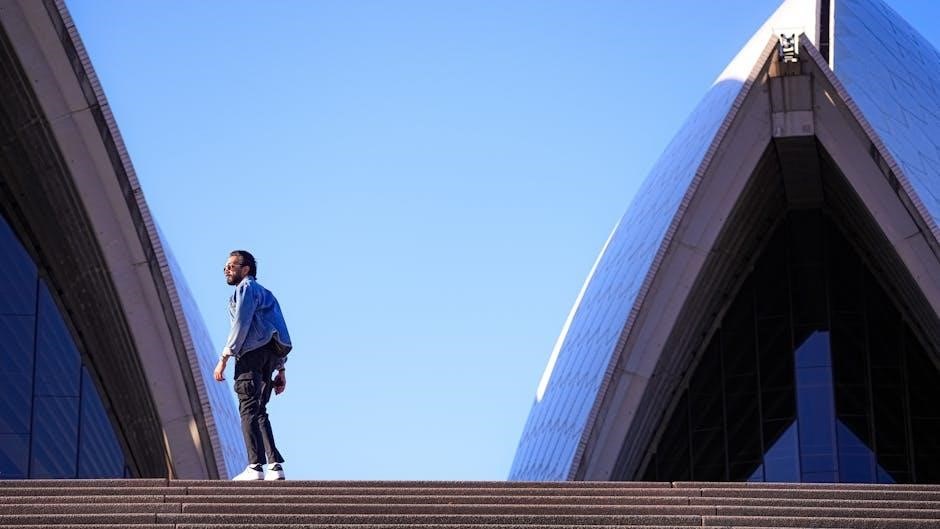
References and Further Reading
Key references include Josef Pieper’s Leisure: The Basis of Culture, along with scholarly articles and essays exploring leisure’s cultural significance․ Online resources and PDFs provide deeper insights․
12․1 Key Works by Josef Pieper
Josef Pieper’s seminal work, Leisure: The Basis of Culture, explores the philosophical underpinnings of leisure and its role in shaping human culture․ This influential book, available as a PDF, delves into the distinction between leisure and work, emphasizing leisure’s essentiality for intellectual and spiritual growth․ Pieper argues that true leisure fosters contemplation, creativity, and a deeper connection to life’s meaning․ His work remains a cornerstone in discussions about the importance of leisure in modern society, offering timeless insights into its cultural and spiritual significance․
12․2 Recommended Articles and Essays
For deeper insights into Josef Pieper’s philosophy, explore essays like “The Concept of Leisure” by Chatham R․ Johnston, which examines Pieper’s ideas in a modern context․ Additionally, “Leisure and the Thought of Josef Pieper” by David C․ Schindler offers a theological perspective on Pieper’s work․ These articles, available in PDF formats, provide critical analyses and contemporary applications of Pieper’s theories, enriching one’s understanding of leisure’s cultural and philosophical dimensions․
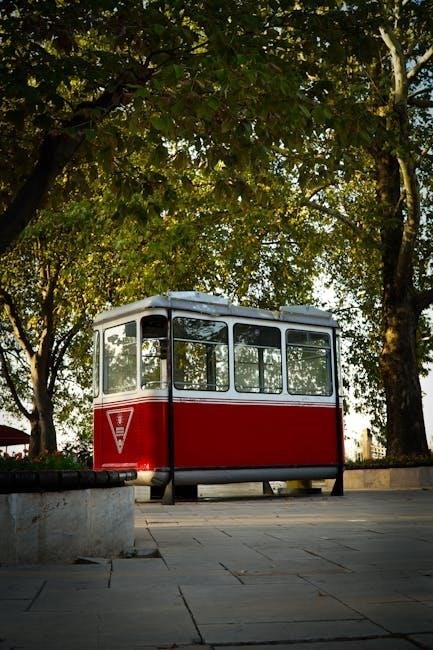
12․3 Online Resources and PDFs
Access comprehensive resources on Josef Pieper’s philosophy through platforms like Google Scholar and ResearchGate․ Search for “Pieper’s Leisure” to find essays and lectures in PDF format․ Websites like JSTOR offer journal articles exploring leisure’s cultural significance․ Additionally, online libraries often provide free access to Pieper’s works, such as Leisure: The Basis of Culture․ These resources are invaluable for scholars and enthusiasts seeking to delve deeper into the philosophical underpinnings of leisure․



